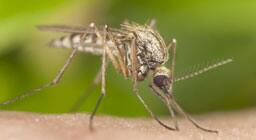New York: A new genome-editing technique can disrupt a single malaria parasite gene with a success rate of up to 100 percent in a matter of weeks, says a study.
"This approach could enable much more rapid gene analysis and boost drug-development efforts," said Jacquin Niles, an associate professor of biological engineering at Massachusetts Institute of Technology (MIT).
Plasmodium falciparum, the parasite that causes malaria, has proven notoriously resistant to scientists' efforts to study its genes.
It can take up to a year to determine the function of a single gene, which has slowed efforts to develop new, more targeted drugs and vaccines.
The new genome-editing technique called CRISPR exploits a set of bacterial proteins that protect microbes from viral infection.
"The system includes a DNA-cutting enzyme, Cas9, bound to a short RNA guide strand that is programmed to bind to a specific genome sequence, telling Cas9 where to make its cut," Niles explained.
This approach allows scientists to target and delete any gene by simply changing the RNA guide strand sequence.
Even though scientists have sequenced the entire genome of Plasmodium falciparum, half of it still remains functionally uncharacterised.
"That is about 2,500 genes. If only we knew what they did we could think about novel therapeutics, whether it is drugs or vaccines," Niles added.
The CRISPR technology could reveal more about how the parasite invades red blood cells and replicates inside cells which could generate new drug and vaccine targets.
Plasmodium falciparum, a blood-borne parasite carried by mosquitoes, is responsible for most of the estimated 219 million cases and over 650,000 deaths from malaria every year.
The findings appeared online in the journal Nature Methods.
















